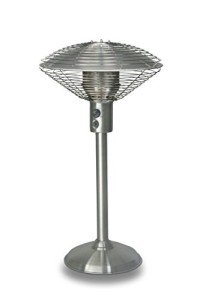10 Beautiful Images To Inspire You About Gas Powered Heaters

Gas Powered Heaters: A Comprehensive Guide
When it comes to heating domestic or commercial areas, gas-powered heaters have actually earned a prominent credibility for their efficiency and price. Offering like this of efficiency and affordable operation, they are preferred by lots of homeowners and services alike. This article aims to clarify the various types, advantages, and considerations associated with gas-powered heaters, enabling readers to make informed decisions about their heating solutions.
Kinds Of Gas Powered Heaters
Gas-powered heaters can mainly be categorized into different categories based on their design and function. Each type serves a specific function and comes with distinct functions:
| Type | Description | Common Uses |
|---|---|---|
| Gas Heaters | Make use of natural gas as a fuel source. | Residential spaces, commercial structures |
| Propane Heaters | Usage propane gas, often in locations without gas. | Outdoor heating, remote places |
| Infrared Gas Heaters | Discharge infrared radiation to directly heat up items. | Patios, workshops, garages |
| Gas Wall Heaters | Installed on walls, these heaters are space-saving. | Small spaces, bed rooms |
| Gas Fireplaces | Supply both warmth and aesthetic appeal. | Living spaces, recreational spaces |
Advantages of Gas Powered Heaters
Gas-powered heaters come with a number of noteworthy advantages, contributing to their popularity among users. Here are a few of the key benefits:
- Energy Efficiency: Gas heaters are understood for their high energy efficiency. They convert a large portion of the energy in gas into heat, typically making high average Annual Fuel Utilization Efficiency (AFUE) rankings, which determines how efficiently a heating system transforms gas energy into usable heat.
- Cost-efficient Operation: Natural gas and propane are typically more affordable than electrical power. Homeowners utilizing gas heating can see a noticeable decrease in their energy expenses during the cooler months.
- Fast Heating: Gas-powered heaters tend to warm spaces quickly, supplying instant relief, especially during chilly winter season days and nights.
- Lower Environmental Impact: Compared to electrical heater that rely on fossil-fuel energy sources, gas heaters can be a more environmentally-friendly option, particularly when using gas that produces fewer carbon emissions.
- Reliability: Gas systems can continue to function throughout power outages, that makes them a trusted heating alternative in areas prone to severe weather condition or electrical interruptions.
Factors to consider When Choosing a Gas Powered Heater
While gas-powered heaters provide a variety of benefits, there are also numerous factors to consider to remember before purchasing:
- Installation Requirements: Some gas heaters require expert installation consisting of venting systems to securely expel combustion gases. Guarantee you understand the setup procedure and any associated expenses.
- Security: It is vital to keep safety in mind when utilizing gas appliances. Routine upkeep and evaluations are crucial to avoiding issues such as gas leaks or carbon monoxide, which can pose serious health risks.
- Space and Size: Selecting the best size heater for your space is crucial. An extra-large system can cause short cycling and unnecessary expenses, while a small system might not offer sufficient heat.
- Fuel Availability: Assess the accessibility of either gas or propane in your area. This can affect continuous costs and use.
- Regional Regulations: Check any regional building regulations and regulations regarding gas setups to guarantee compliance and security.
Maintenance Tips for Gas Powered Heaters
To lengthen the life of gas-powered heaters and maintain their efficiency, consider carrying out the following maintenance methods:
- Regular Inspections: Schedule annual inspections with a qualified specialist to assess the overall condition of the heater and recognize any possible problems.
- Tidy the Burner: Dust and debris can collect on gas burners, resulting in inefficient operation. Cleaning up occasionally can help enhance performance.
- Examine Ventilation: Ensure that venting systems are clear of blockages and functioning properly to alleviate dangers of carbon monoxide gas buildup.
- Try To Find Gas Leaks: Regularly examine the gas line and connections for any prospective leakages. Abrupt increases in gas bills may show a problem.
- Change Filters: On certain designs, air filters might require replacement or cleaning to make sure appropriate airflow and system performance.
FAQs About Gas Powered Heaters
1. How do I know what size gas heater I require?
Computing the suitable size of a gas heater for your space generally includes examining the square footage of the location to be heated up, insulation quality, and climate conditions. A professional evaluation can likewise supply precise sizing recommendations.
2. Are gas heaters safe to use?
Yes, gas heaters can be safe when used and preserved correctly. Nevertheless, Gas Heating Solutions to adhere to security standards including routine examinations and maintenance to ensure that prospective risks such as gas leaks are alleviated.
3. Can I use gas heaters inside?
Many gas heaters are safe for indoor usage, however they need to be properly vented to the outside. Constantly refer to the manufacturer's standards and regional policies before utilizing gas heaters inside your home.
4. What should I do if I smell gas?
If you discover a gas odor, leave the location right away, do not run any electrical gadgets, and contact your local gas company or emergency situation services to report the leak.
5. For how long do gas heaters last?
With correct upkeep, a high-quality gas heater can last anywhere from 10 to 20 years. Regular service can help extend its life-span.
Gas-powered heaters are an effective and efficient method to heat areas during chillier months. With numerous options offered, consumers can discover a heating option tailored to fulfill their particular needs and preferences. By understanding the advantages, factors to consider, and appropriate upkeep needed, individuals can make sure that their gas heating systems provide warmth dependably and securely for many winters to come.

